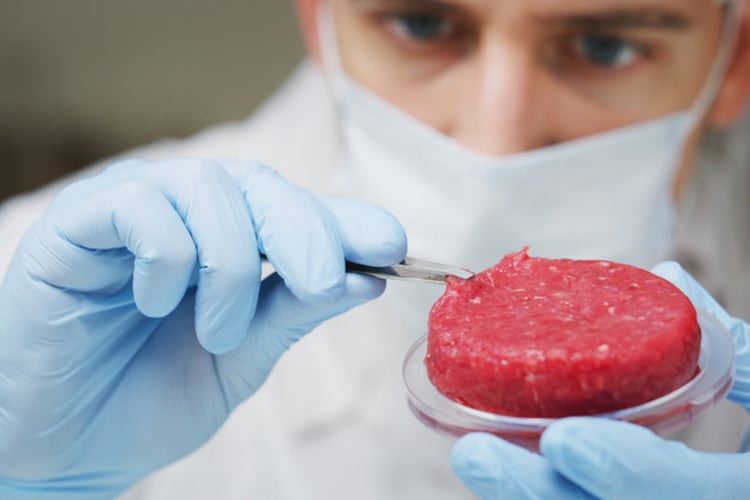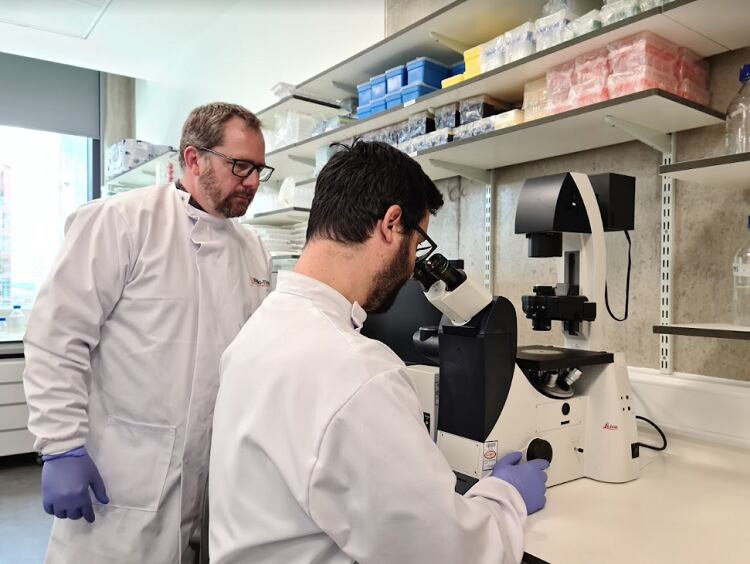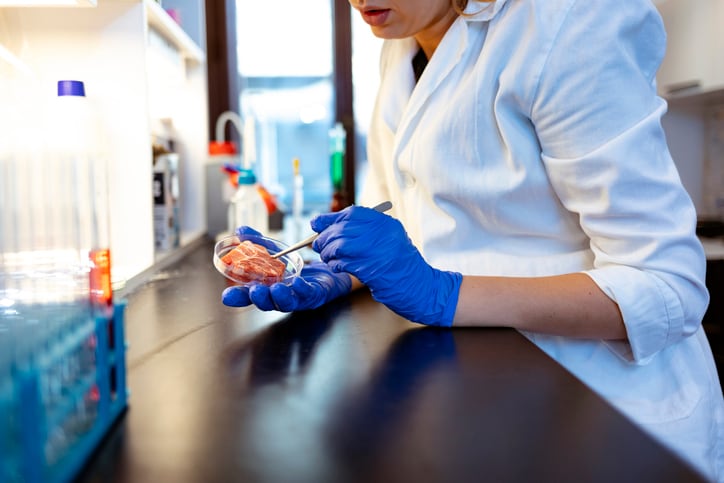The event, which was was hosted by Anthony Browne (Conservative MP for South Cambridgeshire), offered MPs and peers from across all parties the opportunity to learn more about the science behind lab-grown meat. Also known as cultivated meat, cultured meat and slaughter-free meat, this rapidly emerging technology offers the prospect of growing products like beef, pork and chicken in bioreactors using only animal cells, energy and a growth media.
Hearing from speakers including Ivy Farm co-founder Dr Russ Tucker, attendees were urged to back a more ‘collaborative’ regulatory focus and increase investment in research to unlock the benefits of the UK’s burgeoning cultivated meat sector.
A ‘gamechanger’ for climate, food security and the economy
Dr Tucker told the event that opening the door to cultivated meat innovation could be a ‘gamechanger’ for climate-friendly food production.
Cultivated meat causes up to 92% less carbon emissions, requires up to 95% less land than traditional livestock farming and is also free from antibiotics, according to environmental consultancy CE Delft.
“The UK government is a leading power in the global fight against the worst effects of climate change, and by adapting the way we farm and eat we can make a huge impact on how well the nation rises to this challenge. But the cultivated meat industry doesn’t just have huge environmental benefits, it also presents some great economic opportunities,” Dr Tucker suggested.
The cultivated meat sector also has the potential to contribute up to £523m in tax revenue and provide £2.1bn to the UK’s economy by 2030, the food tech pioneer claimed. Research by Oxford Economics suggests the industry could create almost 16,500 jobs, including 8,300 highly skilled jobs, over the next decade.
As well as providing an economic boost, proponents of cultivated meat technologies suggested that adoption and a favourable regulatory environment would provide the UK with improved food security, reducing the country’s reliance on the £6.6bn-worth of meat products that are imported each year.
Many of these imported meats are produced to lower environmental standards and with a higher carbon footprint than conventional meat reared in the UK, speakers stressed.
Investment and regulatory certainty needed
But these potential benefits will only be realised if we move quickly, attendees were told.
In order for UK innovators to capitalise on the opportunity offered by cultivated meat – and for the country at large to reap the benefits of adoption – proponents insisted that the country needs to act now to deliver a favourable regulatory framework.
“It is absolutely crucial that we have the regulatory framework to support its growth and to make the UK a world-leader in food technology. Without that, the UK is in danger of being left behind or worse still, UK companies will be forced to set up abroad,” Dr Tucker warned.
Elena Walden, Policy Manager at the Good Food Institute Europe, further stressed the importance of the need for greater investment in this space: “It’s impossible for the UK to reach net zero by 2050 without addressing emissions from our food system. But there’s no need for ministers to impose restrictions on what people eat. Cultivated meat can deliver the meat people want with a fraction of the environmental impact, while freeing up land for more sustainable farming, and creating green jobs across the UK.
“But to realise these benefits, the government must invest in open-access research to accelerate progress and ensure our world-leading universities are at the forefront of sustainable protein science – just as they did with renewable energy.”
The reception featured other key players in this burgeoning sector, talking about how UK regulation and investment in open-access research can unleash its growth potential, including Peter Quigley, Deputy Director of Regulatory Services (Interim) at the Food Standards Agency, the regulator which has oversight over novel foods in the UK. Other British companies were also present, including representatives from Roslin Technologies, Multus Media, CellulaREvolution, Waitrose and Nomad Foods.




